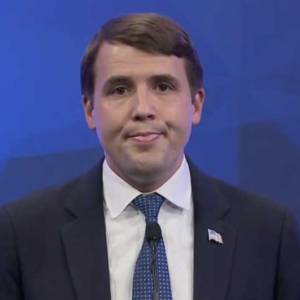U.S. Representative Chris Pappas took more money from political action committees in the first quarter of fundraising this election cycle than he did from all Granite Staters combined, according to his latest Federal Election Commission finance reports,
Pappas, who has twice voted for H.R. 1, the Democrats’ sweeping election law bill, says a primary reason for backing federal control of state elections is to “limit the influence of big money and corporate special interests.”
In a campaign ad from August 2018, Pappas said: “Everywhere I go people say ‘let’s get money out of politics,’ I couldn’t agree more.” But in the first quarter of this year alone, the two-term congressman took nearly $100,000 in PAC donations compared to $92,146 from Granite Staters.
Notably, one donation was from progressive activist Rep. Alexandria Ocasio-Cortez’s Courage to Change PAC. After being questioned about taking a PAC donation from a member of Congress who supports the Green New Deal, packing the Supreme Court, and slavery reparations, a Pappas spokesperson declared the contribution a “clerical error” said he quickly returned the cash.
Republicans scoffed at the explanation. “Returning checks from AOC is not going to hide the fact that Chris Pappas is bought and paid for by the radical left and corporate special interests in Washington,” said John Corbett, who ran Republican Matt Mowers’ 2020 congressional campaign.
In that same TV ad pledging to get money out of politics, Pappas also declared, “I’m the only candidate in this race pledging that the majority of my campaign donors live right here in New Hampshire.”
But so far this year only 40 percent of the $228,971 in itemized individual contributions Pappas has received came from Granite Staters. The other 60 percent came from out-of-state donors.
Pappas declined to respond to multiple requests for comment about his campaign finances.
“It should come as no surprise that rubber-stamp Democrats like Chris Pappas receive more money from PACs than their own constituents,” said newly-minted Republican National Committee Northeast Co-Chair Dr. Demi Kouzounas.
“Bolstering campaigns on the backs of billionaires rather than the people they represent has become an integral part of the Democrats’ playbook, resulting in Democrats being more interested in pleasing their party bosses than working for the people they represent. If Granite Staters want to know where Pappas’ priorities really lie, just follow the money,” Kouzounas told NHJournal.
This isn’t the first time that Pappas’ fundraising has come under question. In February Breitbart reported 61 percent of Pappas’ campaign donations for the final quarter of 2020 came from House Speaker Nancy Pelosi and groups affiliated with her. At that time, only 3 percent of his donations had come from donors in Pappas’ congressional district.
New Hampshire is a small state, and it’s not unusual for out-of-state money to exceed in-state contributions. However, Pappas and other Democrats have made campaign financing an issue as part of their push to pass H.R. 1.
Pappas and his fellow New Hampshire Democrats are proposing to solve the campaign finance problem with taxpayer-funded elections.
“The legislation implements a 600 percent match for certain political contributions to congressional and presidential candidates, forcing taxpayers to subsidize political campaigns,” reports Americans for Tax Reform. “The CBO has estimated that, in the next 10 years, tax-financed campaigns will cost taxpayers $2 billion.”
Defenders of H.R. 1 dispute claims the funding comes from taxpayers. “The bill seeks to fund a 6-to-1 small donation matching program exclusively through the Freedom from Influence Fund, which, unlike funding that has been used for presidential campaigns for decades, is not necessarily taken directly from everyday taxpayers,” Newsweek reports. “The Freedom from Influence Fund accumulates money from a 2.75 percent surcharge on criminal and civil penalties, as well as settlements from corporations, corporate officers, and, to a much lesser extent, individual tax code violators in upper-income brackets.”
However, if the money is spent on campaign attack ads and hiring pollsters, it has to be made up by the general fund. Read: “Taxpayers.”
According to one estimate, under the H.R. 1 formula, Pappas could receive up to $5 million in public money to pay for his re-election TV ads and campaign staff.




